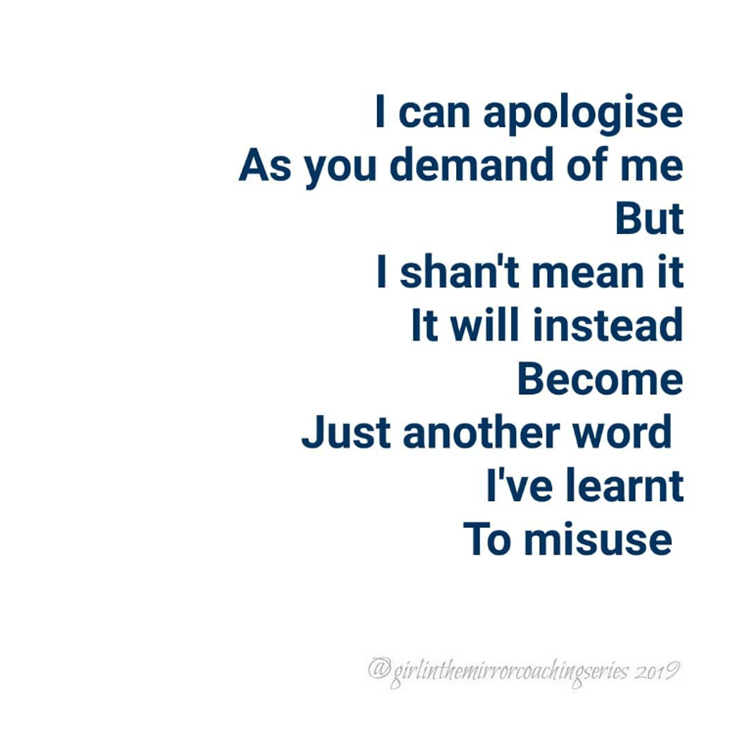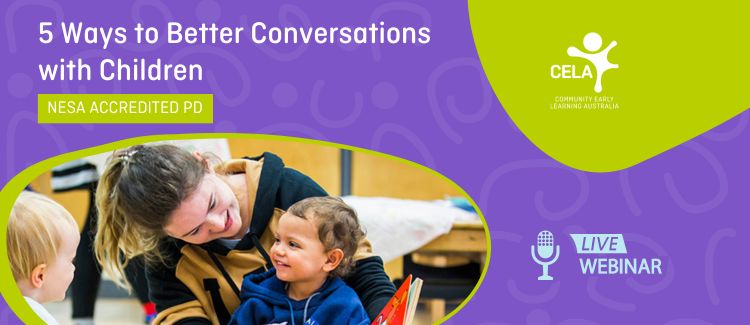|
Our work in early childhood requires us to tailor everything we do to children’s capabilities and strengths. Walk into any early years classroom and this will be visible; drink bottles at children’s height, books an appropriate length for their attention span, and developmentally appropriate behaviour support strategies to encourage empathy, critical thinking and self-regulation.
Each service has varying philosophies, structures and attributes; however, one thing is often overlooked. Over the years, I’ve heard many educators prompting children to apologise in order to manage challenging behaviours and situations. The EYLF (V2.0) asks that we "model care, empathy and respect for children, staff and families”, but is forcing apologies from young children really an illustration of that? (AGDE, 2022, P.36)
|
Pause and think: What do apologies mean to young children?
When a two-and-a-half-year-old tries to snatch their favourite book from a peer, it’s easy to view this behaviour through an adult lens and expect an adult response—an apology.

As an adult, I often apologise to people. I do it when I forget to reply to an email, when I’ve been a bit cranky at work, or when I bump into someone at the supermarket. I apologise not because someone else is telling me to, or because if I don’t say it I’ll be in trouble. I say sorry because, as an adult, I have a deep and empathetic understanding of the implications that my actions have on others. Children, particularly children under four, have not yet developed these skills.
It's easy to see that when we apply this strategy to guide behaviour, we are missing an opportunity to build empathy and implement a reflective and developmentally inappropriate response. As professionals, we know that we cannot expect young children to exhibit the same behaviours as adults; that’s why so much of our professional life is spent teaching and helping children to dress themselves, feed themselves and express themselves. If we know that developmental appropriateness is the underpinning of all our work with young children, then we know that expecting such complex adult behaviour, such as apologising, simply will not work. After all, I’m sure we’ve all known many children who’ve learned to quickly shout "sorry!" over their shoulder as they charge across the classroom, knocking their peers over.
Teaching and modelling: Authentic displays of empathy
If the goal behind this strategy is to promote authentic displays of empathy from young children, then we need to intentionally teach and model this skill. Unfortunately, this means putting the word “sorry” aside for a while, to instead focus on teaching emotional literacy. If a child hits, snatches from or simply barrels into a peer, we should focus on the feelings and consequences that have occurred.
Personally, this means I will never prompt an apology from a child. I simply can’t see how this approach promotes sincere displays of empathy between peers—even for preschool-aged children with broader skills of emotional literacy. Instead, I prompt critical thinking through open-ended discussions and activities.
I prompt empathy by asking questions like “How do you think she’s feeling?”, “I wonder how we could make him feel better?” or by stating the consequence in a non-judgemental way, acknowledging that it looks like they might be hurt or be feeling upset. Sometimes a hug, a band aid or checking to see if someone is ok is a much more meaningful response. We can also use the opportunity to discuss what could be done differently next time.
Apologies do have a place in our classrooms
I do believe that apologies have a role within the early childhood classroom. I often use them in my work, but instead of prompting this behaviour from children, I focus instead on modelling authentic apologies in my teaching. This is something which incidentally occurs in our settings.
We apologise for running late on our break, explaining that we had to take a call or lost track of time.
We apologise for failing to share the sunscreen round that afternoon, offering to switch tomorrow.
Being conscious of this incidental modelling will allow you to emphasise its importance with the young children in your service.
As a teacher, I use apologies to build relationships and promote respect between myself and the children. When I’ve gathered a group of children for an activity and have to quickly grab a resource from the storeroom, I’ll apologise, using the opportunity to display that I know the implications of my actions, and that I know how they’re feeling. I also use apologies when responding to behaviour, ensuring that I invest some one-on-one time with a child to explain why I responded in the way I did, and how I was feeling at the time (often frustrated or overwhelmed!). I’ll ask how the child is feeling and offer a sincere apology for the way I behaved. After all, I’m sure we all believe that for children to understand the meaning of authentic apologies we need to extend them the same courtesy.
Summary:
Meg suggests that young children, especially those under four, have not yet developed the empathy and understanding to apologise authentically. Instead of prompting forced apologies, Meg suggests focusing on teaching emotional literacy and modelling authentic displays of empathy through open-ended discussions and activities. While apologies have a place in the early childhood environment, they should be used by educators to build relationships and promote respect, rather than expecting complex adult behaviours from young children who are still developing.
CELA professional development relating to this topic

FIND OUT MORE
About Meg
Meg is an Early Childhood Teacher in the eastern suburbs of Melbourne on Wurundjeri land. She has worked across a range of settings throughout her decade of work in the early learning sector, and is now pursuing postgraduate study in adult education. Meg is very passionate about advocating for the early childhood profession in a way that both challenges and empowers educators.